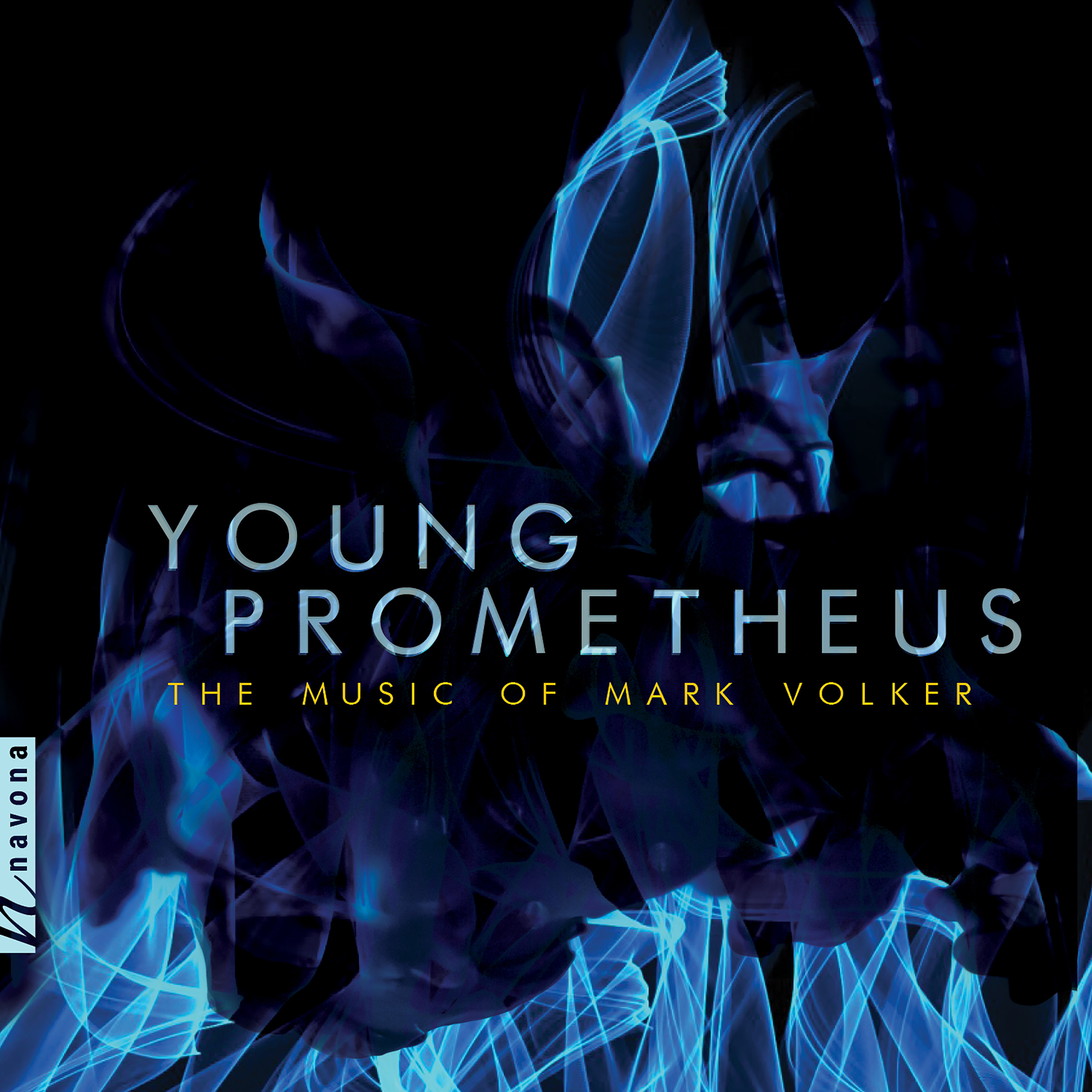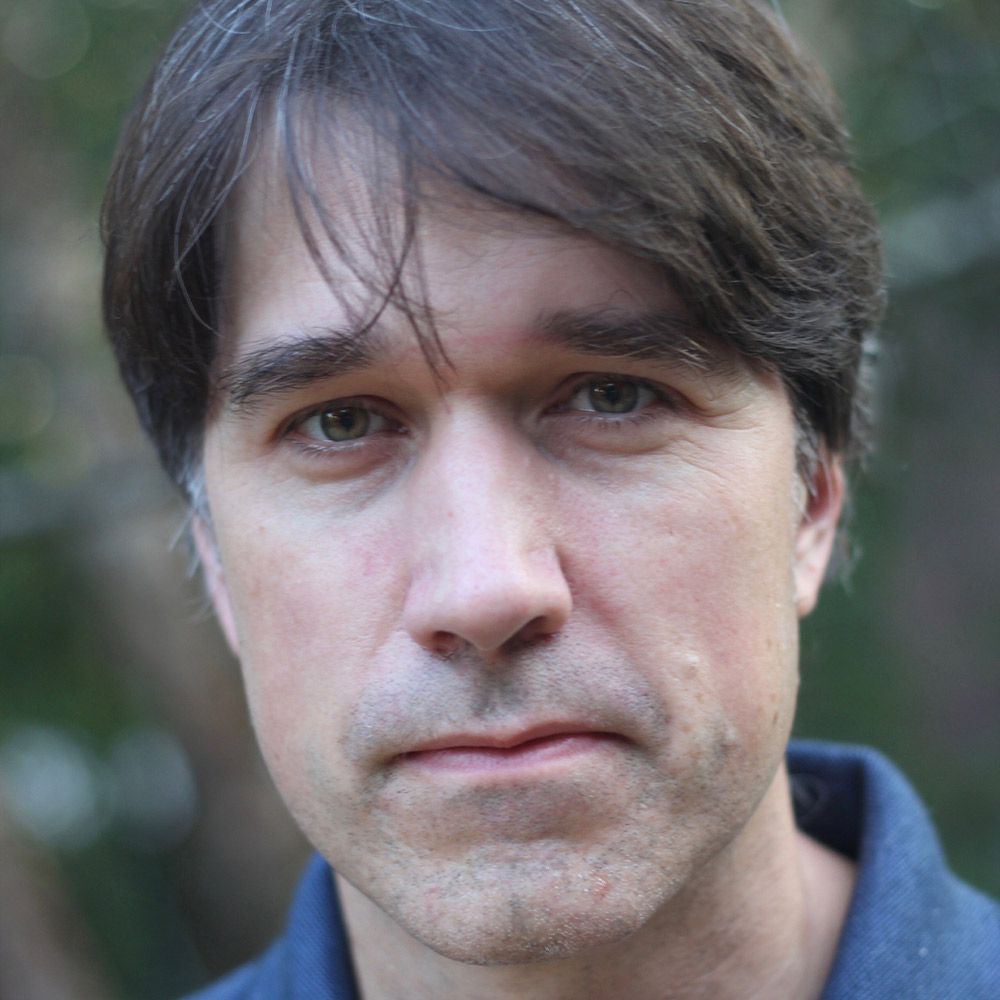
Inspired by poetry and prose, composer Mark Volker’s latest release YOUNG PROMETHEUS is about reactions. From the philosophical reaction of the “Three Quotations” to the physical reactions in “Echoes of Yesterday,” Mark creates an atmosphere that both conveys the optimistic and ominous.
Today, Mark is our next featured artist in “The Inside Story,” a blog series exploring the inner workings and personalities of our artists. Read on to learn about his connections to modern ballet, Mary Shelley’s epic novel Frankenstein, and New York’s Black Lake…
Who were your favorite artists growing up?
The first musical styles that really moved me as a kid were heavy metal and progressive rock. The raw and passionate power of Judas Priest’s music in particular first jolted me into a love for music in general. Soon after, I was introduced to the music of Yes and ELP. The abstract, yet detailed, narratives and sculptures I heard in the music of these groups really showed me that music was capable of truly creating sound worlds. This is what first made me want to compose music. My earliest compositions were for the rock group with which I played in high school. When I was subsequently introduced to chamber and orchestral music of twentieth century composers like Ravel, Bartok, Shostakovich, and Messiaen, I felt like it was a logical next step in my exposure to the expressive potential of music. I still consider all of these steps important to my music, and I hope they shine through as authentic influences.
In the event of a zombie apocalypse, what are the three things you absolutely cannot live without?
The past decade of my life has brought tremendous challenges. In the midst of this, and despite the fact that I am a very independent person by nature, I have found that what I value most are my wife and kids. I am never happier or more inspired than when I am spending time and interacting with them. My wife Alyssa is my perfect complement. She is a singer and teacher who is a great artist in her own right, and my very best friend. My kids, Molly (13) and Jacob (10), are growing into such kind and wonderful people that I consider them our proudest achievements. They are also two of my best friends. I imagine we could navigate the challenges of a zombie apocalypse quite well. The only other thing that I would really need (besides a good axe for defense) would be a guitar or piano.
If you could spend creative time anywhere in the world, where would it be? And why?
One place I know I would be very productive and creative is a place that I actually have been to dozens of times in my life. Black Lake, in northern New York State, is a place that has inspired me since I was a child. It is a very rural, natural setting where my family has vacationed for decades. We go ostensibly to catch fish. The lake, dotted with small islands that have changed little since I was a boy, feels like a constant connection to my past and my dreams. It is really a spiritual home for me. For years, I have often thought that the perfect artistic retreat for me would be to simply visit the lake and compose. Thoughts and memories of Black Lake have stimulated me artistically for years but since I have happily always gone there to spend time with my family, I have never really had an artistic retreat experience there. One day.
Was there a piece on your album that you found more difficult to compose/perform than the others?
Striking the right mood on YOUNG PROMETHEUS was extraordinarily difficult. Paul Vasterling, the artistic director of the Nashville Ballet, wrote a story treatment based very loosely on the Frankenstein story. In this story, the “monster” is a disfigured teenager seeking acceptance and meaning in the face of bullying and rejection. The original Mary Shelly story is very dark, perhaps even darker than the well-known film renderings. However, Paul’s story aims for a much more optimistic and humorous mood, without losing the existential essence of the original source material.
Finding this tone musically (somewhere between Mary Shelly and John Hughes) was very difficult. I wrote several pieces that I liked, but ultimately felt too dark for the ballet. There were enough of these that I created an entirely separate suite with them. The pieces that did finally make their way into YOUNG PROMETHEUS (and the Nashville Ballet’s production Frank) found a very fulfilling balance between serious subject matter and a sincere sense of humor. I have often felt that it can difficult to tastefully fit humor into modern art music. I am so very happy with the way that YOUNG PROMETHEUS manages to exude a sense of fun while retaining a firm, serious voice.
What does this album mean to you personally?
This album is important to me personally as an opportunity to reach a wider audience. I write music with live performance in mind, and live performances have always been the primary outlet for my music. Still, there is no doubt that live performances can only offer so much exposure, especially for modern classical music. The team at PARMA made me feel extremely comfortable and happy with this opportunity, and I believe the album has turned out wonderfully as a result. I have worked on recording projects in the past, but have never experienced the uniform level of attention, quality, and professionalism that I have with PARMA. They truly care about the music, and that is very inspiring to me. Beyond that, I am very proud of the music on the album, as it represents a great cross section of the wide variety of music I write: from the lighter to the very serious in tone, from large-scale ballet music to intimate chamber music, as well as electronic music.
Is there a specific feeling you want listeners to tune into when hearing your work?
While I often associate programmatic or image-based ideas with my music, it is most important to me that listeners hear the more abstract story expressed by each piece. All of my music features an introduction of one or more musical characters that are gradually revealed and developed. The narrative of the music may be quite abstract, but I always want the listener to feel a sense of character introduction, drama, emotion, action, tension, and resolution that is independent of any literal verbal meaning.
Music is a timed-based mode of expression; the meaning of individual notes and harmonies depend on where they fall in time with respect to other notes and harmonies. As a result, music does not convey specific, unequivocal concepts as well as spoken or written language. However, it is much better at expressing the elevated nuances and broad feelings that verbal language strains to express. This is what I always want people to hear and feel in my music. DUST TO DUST was motivated by the thoughts of mortality that I saw in a painting, and YOUNG PROMETHEUS was written to accompany a very defined story, but these pieces each tell their own abstract emotional stories that can only be fully expressed in music.

YOUNG PROMETHEUS is now available through Ravello Records for streaming or purchase. Click here to explore this new album.

Composer Mark Volker is Associate Professor of Music at the Belmont University School of Music, where he is Coordinator of Composition Studies and directs the New Music Ensemble. He received degrees from the University of Chicago (Ph.D), the University of Cincinnati (M.M.), and Ithaca College (B.M.).
